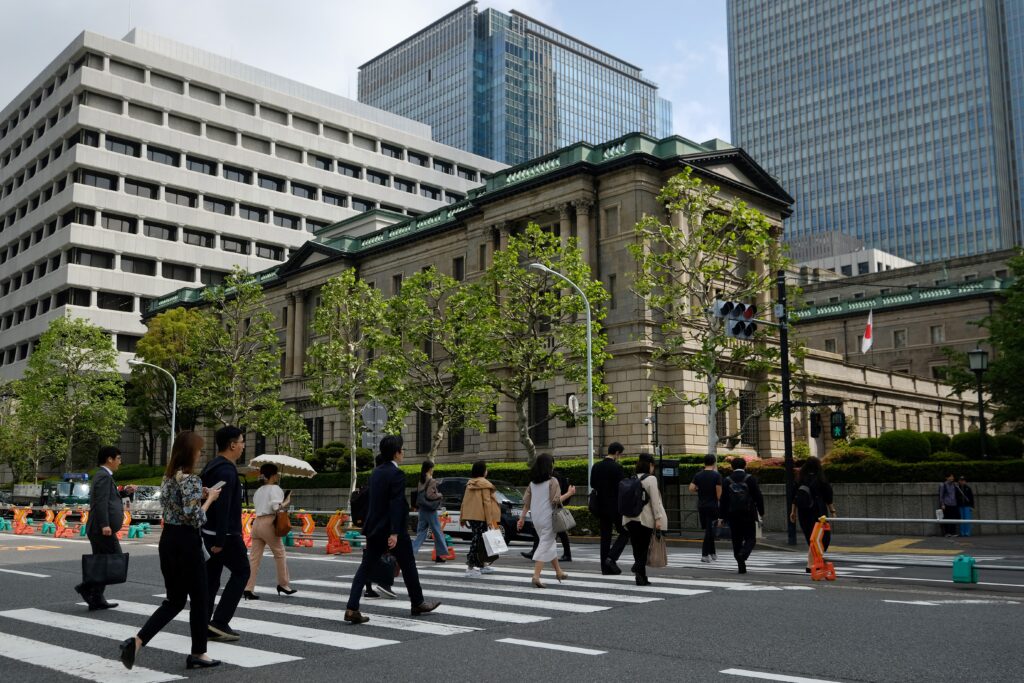
- ARAB NEWS
- 19 May 2024

TOKYO: Many large and regional banks in Japan raised their interest rates on ordinary deposits in March or April for the first time in about 17 years, following the Bank of Japan’s lifting of its negative interest rate policy.
Also, some banks, mainly online banks, increased floating interest rates on their housing loan products after the central bank at its March 18-19 Policy Board meeting decided to scrap the negative rate policy and guide the unsecured overnight call rate, the benchmark short-term interbank lending rate in Japan, to around zero to 0.1 percent in its first rate hike in 17 years.
Under the negative interest rate regime, the BOJ had set the rate at minus 0.1 percent on part of commercial financial institutions’ current account deposits at the central bank.
The BOJ decision on the new call rate target, viewed as a step toward rectifying the country’s ultralow interest rate environment that lasted for many years, was welcomed by the banking industry. Higher interest rates allow banks to reap higher profits from their mainline lending operations, thanks to wider gaps between loan interest rates and rates at which they procure funds as resources for lending.
“The importance of gathering deposits as resources of our business operations will increase further,” Masahiro Kihara, president of Mizuho Financial Group Inc., one of Japan’s top three banking groups, said of the BOJ decision.
The big three banks–MUFG Bank, Sumitomo Mitsui Banking Corp. and Mizuho Bank–and other major banks as well as regional banks have raised their ordinary deposit rates to 0.02 percent per annum from 0.001 percent.
According to the BOJ, the proportion of private financial institutions that raised deposit rates stood at more than 70 percent as of early April.
If the BOJ continues raising interest rates, “it would be quite possible for commercial banks to compete more fiercely (for deposits) by offering more attractive interest rates and services (than rivals’),” Akihiro Fukutome, president of Sumitomo Mitsui Banking and head of the Japanese Bankers Association, said.
Meanwhile, banks have refrained from raising their lending rates, which would affect households and corporate activities, with many opting to keep floating rates on housing loans and short-term prime lending rates for corporate customers unchanged.
But some are bucking the trend. SBI Sumishin Net Bank raised its short-term prime rate from 1.675 percent to 1.775 percent for May. The internet bank is mainly owned by Sumitomo Mitsui Trust Bank and online financial service giant SBI Holdings Inc.
Aeon Bank, affiliated with major retailer Aeon Co., and Rakuten Bank, linked to e-commerce giant Rakuten Group Inc., raised floating interest rates for housing loans for May.
Housing loans with floating rates account for about 80 percent of all new housing loan contracts.
Many contracts are believed to have a mechanism to prevent a rapid increase in monthly repayments of housing loans in times of a spike in interest rates. But the total amount of repayments would increase, putting a heavier burden on borrowers.
The next move by the BOJ will be closely watched, analysts said, noting that many banks are expected to raise their short-term prime rates when the central bank carries out an additional hike in its unsecured overnight call rate target.
After the March rate hike, the BOJ kept its monetary policy unchanged at its policymaking meeting in late April.
The central bank is slated to hold its next policy meeting June 13-14.
JIJI Press